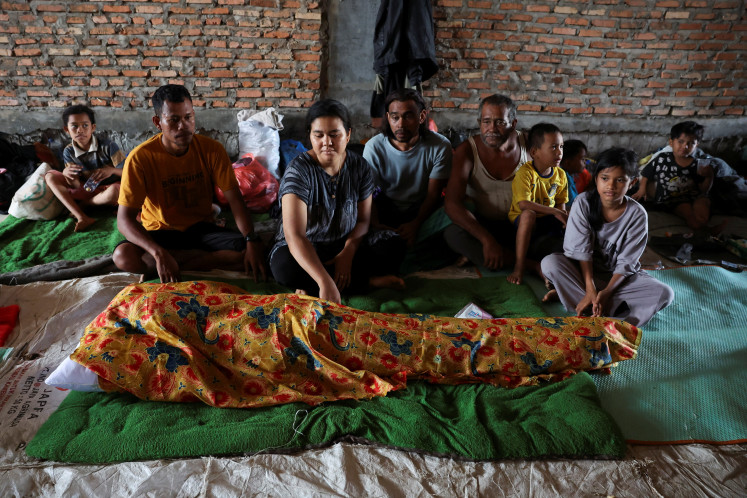Popular Reads
Top Results
Can't find what you're looking for?
View all search resultsPopular Reads
Top Results
Can't find what you're looking for?
View all search resultsRI institutions lag behind regional counterparts
A global higher education index has found Indonesia is lagging behind ASEAN neighbors in academic excellence as the country is represented by only two higher education institutions on the list of Asia’s 100 most reputable universities
Change text size
Gift Premium Articles
to Anyone
A
global higher education index has found Indonesia is lagging behind ASEAN neighbors in academic excellence as the country is represented by only two higher education institutions on the list of Asia’s 100 most reputable universities.
Conducted by education rating institution Quacquarelli Symonds (QS) and released Tuesday, the QS University Rankings: Asia listed 11 Indonesian universities among the 350 best campuses in Asia this year.
Unfortunately, none came close to competing with institutions from Singapore, Malaysia and Thailand, which all had institutions placed higher in the annual ranking.
The prestigious National University of Singapore (NUS) topped the list, while the country’s Nanyang Technical University (NTU) took third place. The top 10 also featured four Hong Kong-based institutions and two universities each from China and South Korea.
Singapore Management University (SMU) was included for the first time in 60th place to round out the city-state’s academic prestige.
Malaysia, once known for sending its foremost scholars to Indonesia to study, now boasts two universities in the top 50 and four in the top 100: Universiti Malaysia ranked 27th and Universiti Putra Malaysia (UPM) placed 49th, while Universiti Sains Malaysia (USM) was close behind at 51st and Universiti Kebangsaan Malaysia (UKM) took 55th spot.
Two Thai universities fared better than Indonesian institutions, with Chulalongkorn University placing 45th and Mahidol University at 61st.
The University of Indonesia (UI), despite rising 12 spots from last year, sat in an underwhelming 67th place, followed by the Bandung Institute of Technology (ITB), which jumped from 122nd to 86th this year.
The QS University Rankings for Asia uses 11 indicators in its scoring system, with academic reputation and reputation among employers making up 50 percent of the score. This is followed by a faculty-to-student ratio worth 15 percent.
Meanwhile, citations per paper and papers per faculty account for 10 percent each, followed by staff with PhDs at 5 percent and the proportions of international faculty, international studies, inbound exchange students and outbound exchange students with 2.5 percent each.
While it is still debatable how accurately the QS rankings reflect academic standing on the global stage, some experts insist that Indonesian higher education institutions should remain unperturbed by the glossy numbers announced each year.
“I’ve always told my friends in higher education institutions not to be trapped by the ranking system, as it cannot be completely separated from capital interests,” education expert Darmaningtyas said on Wednesday.
He argued that reputation was merely one indicator for gauging a university’s popularity, saying academics could also focus on building up institutions that played active roles in social, cultural and political change.
“What’s important to note is that the government should revise its regulations so that lecturers aren’t considered mere salarymen; they should be assessed by their outputs in teaching, research and public education,” Darmaningtyas said.
In order to catch up and improve the country’s standing in higher education, the government must devise policies that emphasize the importance of an outward-looking faculty, according to another education expert, Doni Koesoema, an advisor to the Federation of Indonesian Teachers Associations (FSGI).
Doni recommended that the state equip prospective students with adequate critical thinking skills and a sound command of English from as early as junior high school.
By opening up educational institutions to a broader audience, it is hoped Indonesia can make up for its lackluster research culture and attract interest from international faculty members and students.
“If we want to compete with other countries, we have to shift the paradigm so that all courses are taught in English — that is what will improve our ranking,” he told The Jakarta Post.










